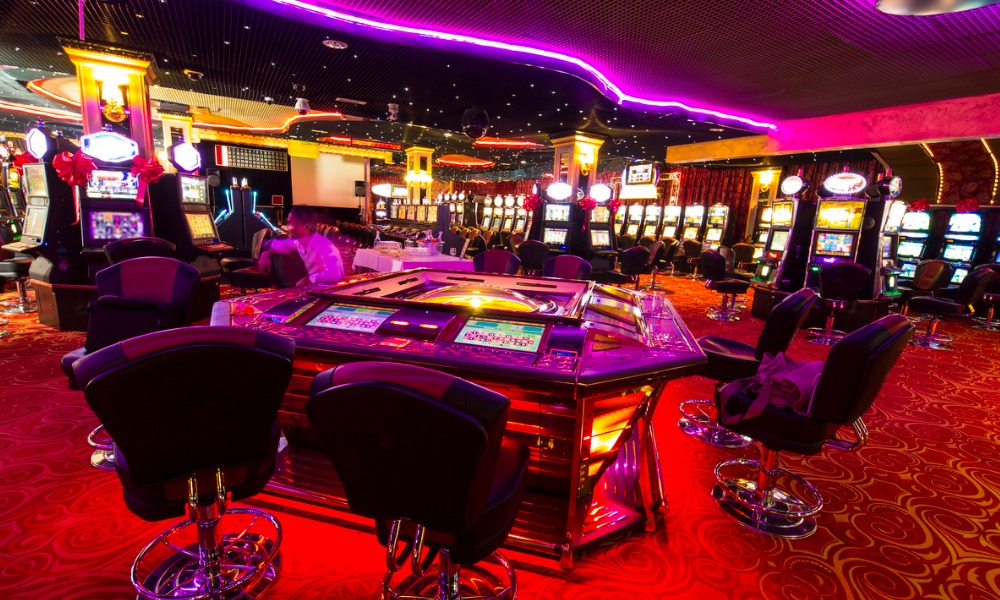Corporation lacks residual discretion to refuse to pay Madawaska First Nation, court says

The New Brunswick Court of Appeal recently said that the province’s Lotteries and Gaming Corporation had the obligation to share net profits from video gaming devices used at the casino on Madawaska First Nation’s reserve.
In 2007, the Province of New Brunswick and Madawaska First Nation entered into an agreement respecting the operation of gaming on Madawaska’s reserve under s. 11.2(1) of N.B.’s Lotteries Act, 1976. The New Brunswick Lotteries and Gaming Corporation started paying Madawaska 95 percent of net profits from the reserve’s video lottery terminals managed by the Atlantic Lottery Corporation.
In 2008, N.B.’s Gaming Control Act repealed the Lotteries Act but continued enforcing s. 11.2 through s. 24. Like s. 11.2(4)(b) of the Lotteries Act, s. 24(5)(b) of the new legislation provided that the Gaming Corporation could pay a First Nation 95 percent of net profits from on-reserve gaming that utilized video gaming devices.
In July 2019, Madawaska asked the Gaming Corporation to share the net profits from video gaming devices used at the casino on its reserve in line with s. 24(5)(b). Madawaska argued that devices used at the casino were the same type as the ones that the Atlantic Lottery Corporation used.
In an October 2019 letter, the Gaming Corporation advised Madawaska that it could not share profits from gaming devices used in casinos. It interpreted video gaming devices under s. 24(5)(b) as only including devices that were part of the video lottery scheme managed by the Atlantic Lottery Corporation under the Video Lottery Scheme Regulation, N.B. Reg. 2008-112.
In a January 2020 letter, the Gaming Corporation reiterated that video gaming devices under s. 24(5)(b) did not include gaming devices used in casinos. It concluded that it had no ability or obligation under s. 24 to pay Madawaska a share of the profits generated from gaming conducted on video gaming devices at the casino on its reserve.
Madawaska filed a judicial review application relating to the January 2020 decision. The appellants – namely, the Gaming Corporation and the Province of New Brunswick as represented by the finance minister – filed a motion to dismiss. The appellants argued that Madawaska failed to commence their application within three months of the October 2019 letter.
The application judge referred the matter back to the Gaming Corporation. He made the following findings:
- Madawaska brought the application within the time required under rule 69.03 of the Rules of Court
- The Gaming Corporation unreasonably refused to pay, based on its conclusion that s. 24(5)(b) gave it no authority to do so
- The Gaming Corporation had the authority to share the net profits from devices at the casino
Profit should be shared
In New Brunswick Lotteries and Gaming Corporation et al. v. Madawaska First Nation, 2023 NBCA 1, the New Brunswick Court of Appeal allowed the appeal solely for the purpose of varying the judgment to set aside the referral back to the Gaming Corporation and to order it to pay Madawaska 95 percent of its net profits, after provision for prizes and the payment of expenses, from video gaming devices used at the casino on Madawaska’s reserve.
First, the appellate court ruled that Madawaska commenced its application on time, based on the Gaming Corporation’s October 2019 written representation that it would address Madawaska’s request to meet and to be heard on the interpretation of s. 24(5)(b) and alternatively on the issue of arbitration.
Second, the Court of Appeal held that the application judge applied the correct standard of review. The judge conducted a reasonableness review and appropriately considered the statutory framework within which it was made, in line with Canada (Minister of Citizenship and Immigration) v. Vavilov, 2019 SCC 65, the court said.
The application judge made no error in finding that the Gaming Corporation’s decision was unreasonable because its interpretation of the provision was unjustifiable, the appellate court concluded.
Lastly, the Court of Appeal determined that the Gaming Corporation lacked the residual discretion under s. 24(5)(b) to refuse to pay Madawaska. Thus, it should pay Madawaska its share of the net profits for the video gaming devices used at the casino on its reserve, the court said.










